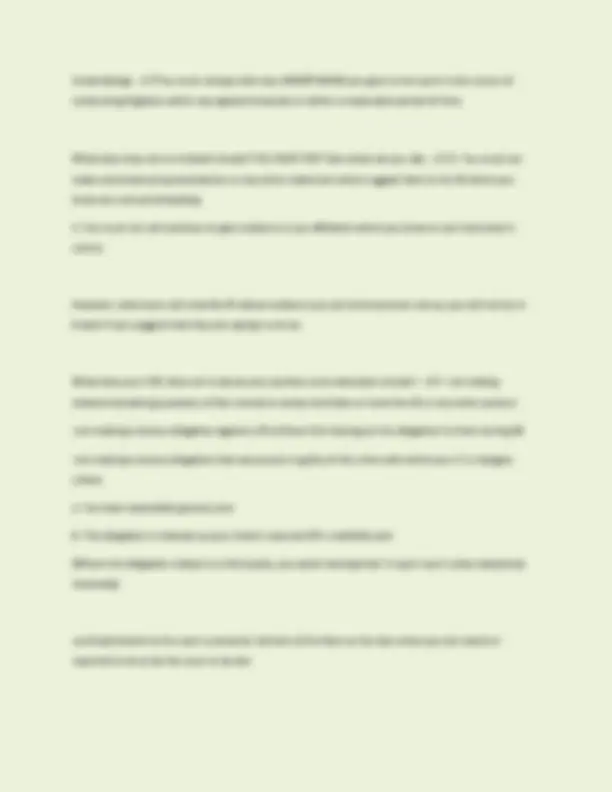





Study with the several resources on Docsity

Earn points by helping other students or get them with a premium plan


Prepare for your exams
Study with the several resources on Docsity

Earn points to download
Earn points by helping other students or get them with a premium plan
Community
Ask the community for help and clear up your study doubts
Discover the best universities in your country according to Docsity users
Free resources
Download our free guides on studying techniques, anxiety management strategies, and thesis advice from Docsity tutors
A comprehensive overview of the ethical obligations of barristers in the uk, specifically focusing on cd1, the duty to the court. It explores the key requirements of cd1, including the duty to act independently, the duty not to mislead the court, and the duty not to abuse the position as an advocate. The document also examines the relationship between cd1 and other ethical codes, such as cd6 (client confidentiality), and provides practical scenarios and examples to illustrate the application of these principles.
Typology: Exams
1 / 5

This page cannot be seen from the preview
Don't miss anything!




What is CD1 and how does it relate to other CDs? - ✔✔I owe a duty to the court to act independently in the interests of justice. This duty overrides any inconsistent obligations you may have other than obligations under criminal alw. What 5 requirements does CD1 impose on you as a barrister? I must... - ✔✔1. I must not knowingly or recklessly mislead the court
How is my duty to the court affected when I don't personally believe what my client is telling me? - ✔✔Your duty to the court does not prevent you from putting your client's case simply because you do not believe the facts as your client states them to be. So long as the positive case you put before the court accords with your client's instructions and does not knowingly or recklessly mislead the tribunals, you are fine. If you believe it is acting in the best interests of your client to tell them in conference that a court is unlikely to accept their version of facts, them you are free to do so. However, if they continue to insist that their account of events is correct and should be presented, then these are your instructions/ What is the relation between your respective duties to client and court? - ✔✔Your duty to act in the best interests of your client is subject to your duty to the court to act independently in the interests of justice. Probing the CD1 v CD6 relationship further. What happens with regard to client confidentiality? 4 steps... - ✔✔Your duty to the court does NOT require you to act in breach of your duty to keep the affairs of each client confidential. If there is a RISK that the court will be MISLED UNLESS you disclose a piece of confidential information learnt during the course of your instructions (or a document that should have been disclosed but was not), then you should:
Undertakings - ✔✔You must comply with any UNDERTAKING you give to the court in the courts of conducting litigation within any agreed timescale or within a reasonable period of time. What does duty not to mislead include? YOU MUST NOT (but what can you do) - ✔✔1. You must not make submissions/representations or any other statement which suggest facts to the W which you know are untrue/misleading.